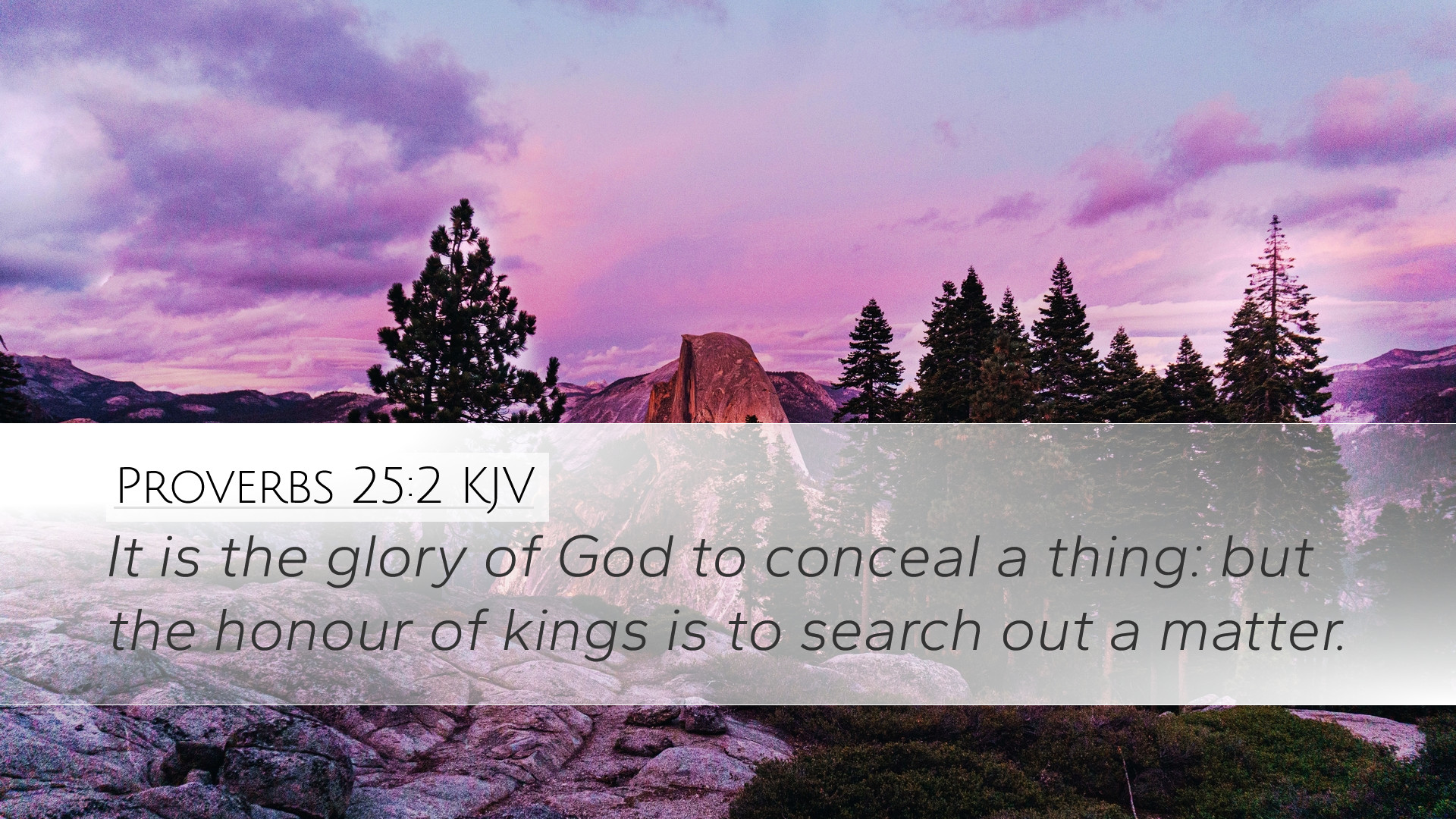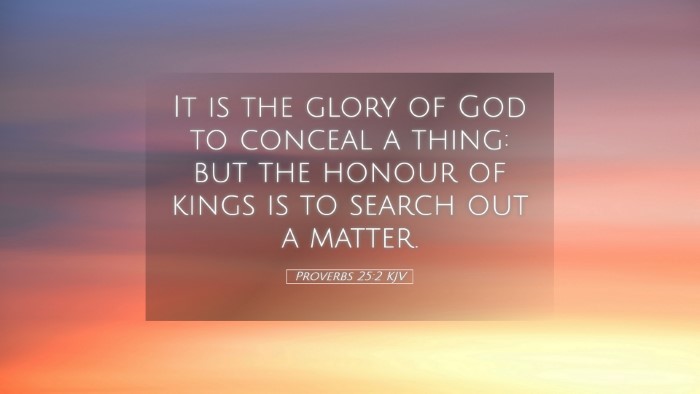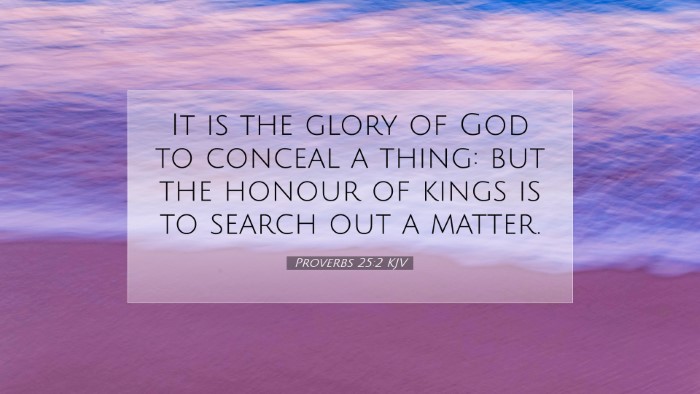Commentary on Proverbs 25:2
Verse: "It is the glory of God to conceal a thing: but the honour of kings is to search out a matter."
Introduction
Proverbs 25:2 highlights the dual nature of knowledge and the divine order of revelation. The juxtaposition of God’s concealment and the responsibility of kings to seek out knowledge provides a profound insight into how divine wisdom operates in the governance of life. This commentary will explore its theological implications as articulated by historical biblical scholars.
The Glory of God to Conceal a Thing
Matthew Henry emphasizes that God's concealment is part of His majesty. He notes, "God's glory consists in His wisdom, which is seen in the hiddenness of many things that He has done." The hidden aspects of creation challenge human intellect and encourage reliance on divine revelation. This concealment reveals God’s sovereignty; He chooses what to make known and what to keep secret.
Albert Barnes further elucidates that the “things” God conceals often relate to mysteries of salvation, the future, and the processes of His providence. This necessary mystery invites the faithful to seek understanding, implying that not all areas of life come with clear and direct answers.
The Honour of Kings to Search Out a Matter
Transitioning to the latter part of the verse, Adam Clarke suggests that kings — or leaders in any capacity — have a duty to investigate and comprehend the mysteries they encounter. "Their honour arises from their engagement to seek justice and wisdom, which is crucial for maintaining order and morality among the people."
Matthew Henry asserts that leaders, reflecting God’s image, are to imitate divine diligence in seeking out truths and wise actions. This exploration is not merely for knowledge's sake; it serves the greater purpose of governance and justice.
The Relationship Between Divine Concealment and Human Inquiry
This verse illustrates a dynamic relationship between divine will and human responsibility. The act of searching out matters is not purely intellectual but is interwoven with moral and spiritual implications. Albert Barnes highlights that true wisdom involves not just seeking knowledge but discerning it in light of divine purpose.
Henry points out that "the search for knowledge must be pursued with humility," recognizing that "there are vast realms of understanding that remain hidden." The interplay urges both leaders and followers to cultivate a humble spirit, acknowledging that while knowledge is sought, the full comprehension resides with God alone.
The Application of Proverbs 25:2
For pastors and theologians, this verse calls for a balanced approach to knowledge and wisdom. It stresses the importance of seeking God's guidance in all pursuits of understanding and leadership. Clarke notes, "The wisdom of the humble man is precious, but the folly of the proud is contemptible." This wisdom is essential for effective ministry and authentic leadership.
Lessons for Leadership
- Humility in Leadership: Leaders must approach their role with a recognition of God’s ultimate authority and the limits of human understanding.
- Search for Justice: Leaders are called to seek out and dispense justice which aligns with God’s will.
- Welcoming Inquiry: The process of engaging with difficult questions and mysteries should be embraced rather than avoided.
- Faith in Providence: Trusting that the things we do not yet understand will eventually become clear through God’s guidance.
Conclusion
Proverbs 25:2 serves as a profound reminder that the mysteries of life require both humility and diligence in our quest for knowledge. As believers, we are encouraged to emulate the divine example of curiosity and intentional inquiry, fostering a profound connection with the Creator who knows all. By intertwining faith with the search for wisdom, we honor both God and the roles we occupy, whether as kings or as humble seekers of truth.


